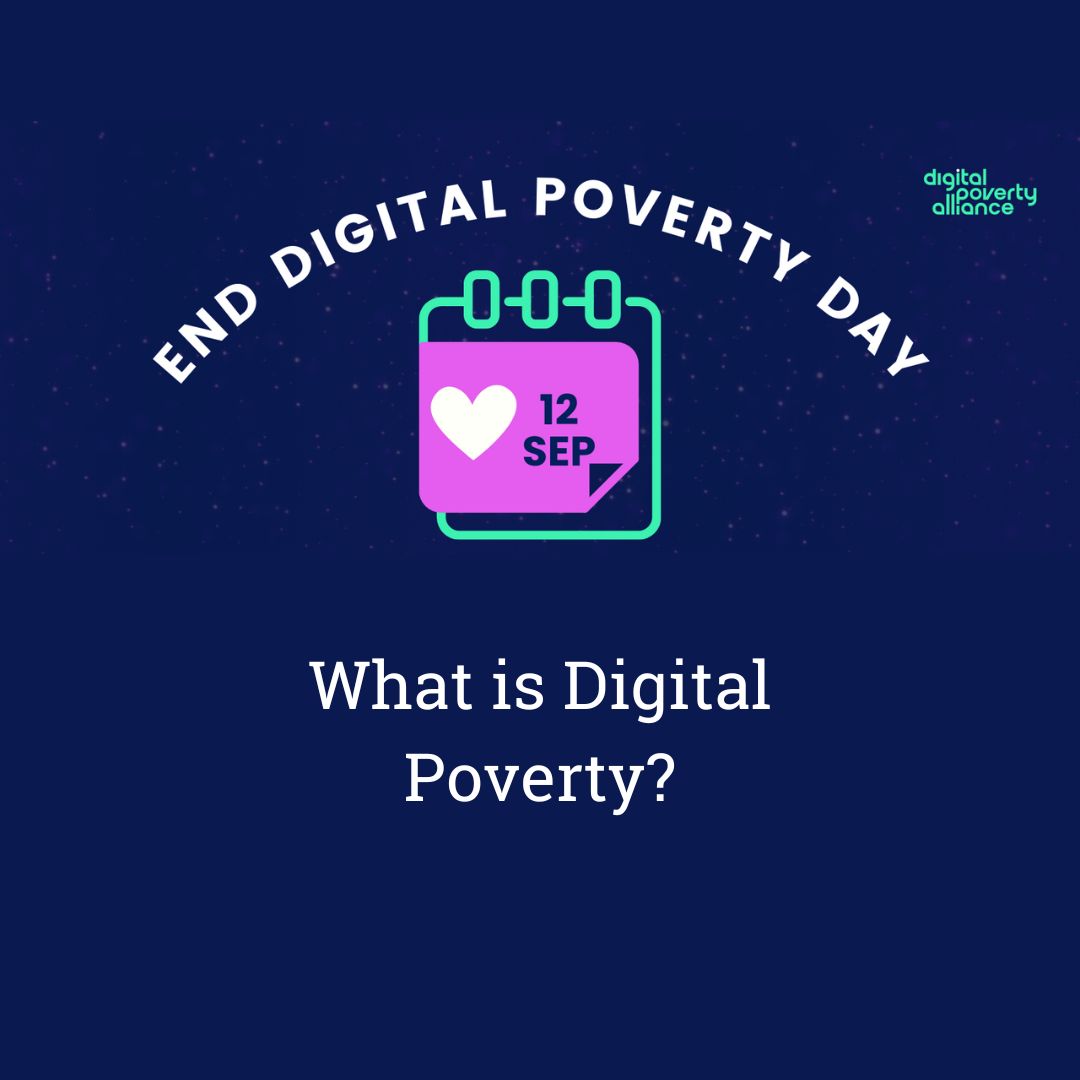September 12th marks End Digital Poverty Day, a national initiative started by the Digital Poverty Alliance to raise awareness of the vital issue of Digital Poverty across the UK. Today we share with you a blog post on what Digital Poverty is and some of the impacts it can have on the lives of everyday people across the UK.
Digital poverty is the lack of access to information and communication technologies (ICTs), such as the Internet, computers, and mobile phones. It can also refer to the lack of skills and knowledge needed to use these technologies.
Who is Affected by Digital Poverty?
Digital poverty can affect people of all ages, but it is most common among low-income households, people living in rural areas, and people with disabilities.
What are the Issues Caused by Digital Poverty?
Digital poverty can have a number of negative consequences, including:
- Educational disadvantage: Children who live in digital poverty are at a disadvantage in school because they may not have access to the same resources as their peers. This can lead to lower educational attainment and fewer opportunities in the future.
- Employment disadvantage: People who live in digital poverty may have difficulty finding and keeping jobs that require ICT skills. This can lead to lower incomes and increased poverty.
- Social isolation: People who live in digital poverty may be isolated from others because they cannot participate in online activities, such as social media and gaming. This can lead to loneliness and depression.
- Health problems: People who live in digital poverty may have difficulty accessing healthcare information and services. This can lead to poorer health outcomes.
What Can Be Done to Address Digital Poverty?
There are a number of things that can be done to address digital poverty, including:
- Providing free or low-cost internet access: This can be done through government programs, community organizations, or businesses.
- Giving away or subsidizing computers and mobile phones: This can help people to afford the devices they need to access the internet.
- Offering digital literacy training: This can help people to learn how to use ICTs effectively.
- Making government services available online: This can make it easier for people to access important information and services.
The first three are part of our core focus here at the MDC and we continue to fight to make digital accessible for all/.
Digital poverty is a serious problem that can have a number of negative consequences. There are a number of things that can be done to address digital poverty, and it is important to work together to make sure that everyone has access to the benefits of the digital age.
If you’d like to get involved to help us fight digital poverty in Manchester you can sponsor our support with your company or workplace, donate your unused device, or email us for more information about joining the Manchester Digital Collective.
End Digital Poverty Day.
